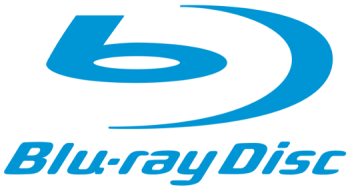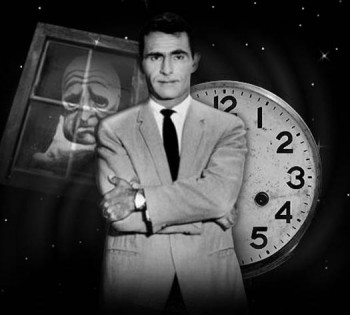The Heart of Linux
Looking for a way to store a Blu-ray movie on a hard drive and finding it.
Most people who’ve read my work in the past 10 years can attest to the fact that I am not shy about pointing out less than acceptable performance or function within the Linuxsphere. Be it the code or coders, I’m gonna talk about what’s wrong and how I believe it might be fixed. I rarely criticize anyone or anything without offering some way to make it right.
 In between my articles here on FOSS Force and my Blog of Helios, I can be found most days popping in and out of my Google + stream where I engage in all manner of discourse. My stream includes, but isn’t restricted to, astrophysicists, hipsters, infantry brigade commanders, poets, slackers, delta force team members (not currently deployed), kernel contributors, distro creators, top 40 country western artists, local talk show hosts and just folks like you and me.
In between my articles here on FOSS Force and my Blog of Helios, I can be found most days popping in and out of my Google + stream where I engage in all manner of discourse. My stream includes, but isn’t restricted to, astrophysicists, hipsters, infantry brigade commanders, poets, slackers, delta force team members (not currently deployed), kernel contributors, distro creators, top 40 country western artists, local talk show hosts and just folks like you and me.
The just folks like you and me part? That’s where I am most comfortable.
I’m comfortable there because we share the same interests and oftentimes the same goals. I gave up on the whole Linux desktop domination plot a few years ago. It’s a rare thing when idealism won’t eventually succumb to pragmatism. To be completely honest, we were screwed comin’ out the gate. By the time Linux found its voice and numbers, Microsoft was already so globally entrenched, we never had a chance. But that’s okay.
It’s okay because Linux, or projects that are Linux-based, came in the back door. Linux now runs everything from the on board computer in my car to the communication and guidance systems that are relaying data between Earth and Mars. If you think that’s impressive, let’s stretch it out about a billion more miles and say between Earth and Pluto. NASA and the New Horizons Project chose open source software and Linux in particular because of it’s modular abilities and its open source heart, not to mention the rock-solid stability. How many times would NASA risk bricking a $500 million solar probe by having to reboot a Windows core system after every update?
“Please do not reboot your half billion dollar space probe until Windows completes the current updates. (currently 12 of 8179).”
So, is the much maligned “Year of the Linux Desktop” gone? Yeah, it’sbeen gone a while now, but it’s clawed its way to the top in about everyother significant area or function. To include over a billion Android(Linux-kernel) devices. Let’s call that a win and move on. It’s been along day.
So speaking of Linux devices and software, the other day, I received my Blu-ray disc of “National Geographic’s Journey to the Edge of the Universe.” It’s narrated by none other than Alec Baldwin, and while he’s a bonafide putz, he comes close to being hypnotic in his narration of this masterpiece. His voice, combined with the spectacular graphics in the film, make it one of the keepers in your collection or for your kids.
Truth be known, I didn’t mean to order the Blu-ray version, so when I received it and saw that it was in the Blu-ray format, I shrugged and set about the task of ripping it and converting it to a format more acceptable within the Linuxsphere.
Yeah, go ahead and giggle. Someone had to explain it to me.
 Seems that the Blu-ray format is not only a nightmare to work with inside the Linuxsphere, it’s just as bad outside of it. So I begin the task of finding a piece of software that would rip a Blu-ray disc. HandBrake is an application I had used a while back to rip a DVD, but upon closer review, HandBrake doesn’t do Blu-ray. It’s not because it isn’t capable. The software authors of HandBrake are more than qualified and talented to do so, but they can’t.
Seems that the Blu-ray format is not only a nightmare to work with inside the Linuxsphere, it’s just as bad outside of it. So I begin the task of finding a piece of software that would rip a Blu-ray disc. HandBrake is an application I had used a while back to rip a DVD, but upon closer review, HandBrake doesn’t do Blu-ray. It’s not because it isn’t capable. The software authors of HandBrake are more than qualified and talented to do so, but they can’t.
My Google+ and every-other-Linux-convention-buddy Matt Hartley ‘splained to me: “It isn’t their fault…it’s the DRM.”
1998 how do I loath thee? Let me count the ways.
That was the year when the Digital Millennium Copyright Act became the law of the land. It’s within that nightmare legislation that we, as computer users and software engineers, took one right in the shorts on many levels, not the least of which was that it made getting around Digital Rights Restrictions Management a criminal act.
It’s not surprising, then, that there just isn’t much that is available to rip Blu-ray discs. There is at least one application available – I won’t name it to help keep it from attracting a DMCA takedown notice – which is multi-platform and even has a Linux version, but it needs to be compiled and built from the source code.
Thankfully, within the shining brilliance of those-who-can-code, Matt Hartley took on the task of making it a one-click-will-do-the-job script. After two days, Matt had it working in a kinda, sorta way. There were too many variables. What worked on Ubuntu wouldn’t work on Fedora. What he built to work on Fedora, wouldn’t work on Arch. And so it goes….
Matt, however, is not a guy easily swayed from a task. He figured that someone, somewhere had gotten this to work. It turned out he was right, but not in the gotten-this-to-work way he expected. Someone built it so it could be installed on a Debian based system through a PPA. Matt did offer the disclaimer that this worked on his 15.X system but that my mileage might vary. I followed his instructions, adding the PPA to my library and installed via command line.
Bingo baby! It worked. We’re in. Pop the corks. Apt-get downloaded from the PPA and installed the application just fine on my 14.04 LTS Linux Mint KDE install. Now all I needed to do was run to Frys Electronics to get a Blu-ray player, and. I’ll use any excuse to go to Fry’s. Thank you, Matt!
I’m thanking Matt for taking command and through his tenacity finding a solution. Sometimes it just comes down to someone having the drive and determination to get something done. The method by which you begin a task is often not the same one that brings you to cross the finish line. It doesn’t matter who engineered the solution ornot. The guy who engineered this answer did his part, and Matt spent hours of his time to make the solution more accessable – if not still obscured by the legal cloud that is the DMCA. That’s just the kind of guy Matt Hartley is.
So excuse me if I use this public forum to say, “Thanks buddy. I appreciate it.”
Down the road, I am certain many others will too.
And those of you who’ve been wanting to exercise your fair use rights to move your Blu-ray collection to your hard drive, now know there’s a solution. If we found it, so can you.
Ken Starks is the founder of the Helios Project and Reglue, which for 20 years provided refurbished older computers running Linux to disadvantaged school kids, as well as providing digital help for senior citizens, in the Austin, Texas area. He was a columnist for FOSS Force from 2013-2016, and remains part of our family. Follow him on Twitter: @Reglue








Yeah. From what I understand the libdvdcss decryption code to let people rip DVDs lives in a legal gray area – or maybe it’s illegal, but nobody cares. But as far as I know any attempt to release FOSS software to decrypt Blu Rays has been blocked.
I downloaded, compiled and installed the same Software That Shall Not Be Named and used it to rip half of my Blu Rays. I need to buy additional storage drives before I rip many more. Every film I rip is one I legally bought on physical media.
I’m glad you got it working for you. For anyone else – I did not find it that hard to compile and run the program, the directions in their user forums were pretty good. You can probably manage it.
You mean this video?
https://www.youtube.com/watch?v=dVIigCMhCZc
Thanks YouTube.
I have been using makemkv for linux and have not had any problems ripping blu ray discs..
Oh, and I had to install this as well…
libbluray-bin
Debian doesn’t use PPA’s. You mean to say “Someone built it so it could be installed on an Ubuntu based system through a PPA.”
There is quite a difference between the two.
Ken it is amazing to me that you can take what happened in a g+ post and tell a story like this out of it. It was only after I read this whole thing that I realized what happened. The whole spirit of open source, or helping each other out. When following that post I was just thinking of what would Matt come up with and how cool it would be to check out what he made. I gave no thought to the underlying spirit. That is what makes you such a good story teller – seeing the things that makes us all feel good and describing them in an interesting way.
As kruug said, PPA’s are for Ubuntu, not Debian.
Beyond that, I’d like to add some practical advice:
Don’t install packages made for Ubuntu on Debian.
Just don’t.
Installing packages made for Ubuntu on a Debian machine is a recipe for disaster.
It might work in the short run, but eventually it’ll screw up your system.
I have so far avoided Blu-ray like the plague! Why? Because even if the disk or player isn’t made by Sony, they still get a license fee. I will not knowingly support Sony in any way! DVDs are good enough for most people and they are not going away any time soon.
There is at least one ppa that I can think of that is for Debian and while it’s true add-apt-repository is blocked on Debian there is still no reason why someone can’t use a ppa to make software easier to install on Debian. They are historically for Ubuntu but that need not be the case if someone wanted to adapt that system for Debian software as well. Java comes to mind as the one ppa you can use with Debian As it downloads Java from the oracle website. There are for sure a few others like this but they are rare.
You can install java from the official Debian repos. You can even host your own repo for code distribution without the need for ppa’s.
There is no good reason to add a PPA to a Debian installation.
Ubuntu packages on Debian WILL HOSE YOUR SYSTEM eventually.
Even packages that initially seem perfectly fine will do it.
I’ve seen people do it too many times, even as they ignored experienced Debian users’ advice. Comically, they then typically whine about it on forums about how Debian broke when they absolutely did it to themselves.
Generally I’ve had to rip DVDs in order to bypass some obnoxious ‘previews of coming attractions’ that are force played even before the first menu. With the larger capacity of Blu-ray, this crap could get really, really bad. DIE, content owners, DIE!
The HTPC ‘phenomena’ has always puzzled me – why spend a lot of time copying content to a hard drive just to make it slightly easier to play it back on demand or in multiple rooms of the house. Somehow Robert Herron makes a living talking about this.
BTW these optical discs store real compactly when transferred to a Tyvek sleeve.
Gratuitous Matt Hartley plug – see his informative blog at freedompenguin.com
“Generally I’ve had to rip DVDs in order to bypass some obnoxious ‘previews of coming attractions’ that are force played even before the first menu.”
DVD and Blu-ray are slave formats that refuse to do what the user wants, therefore users are completely justified in changing it to something else.
F#(% the “content owners”. I bought it, it is my content.
considering the use of PPA’s in Debian, my understanding is that Debian has been planning to introduce it’s own PPA’s very soon. IIRC this has been planned for a long time already.